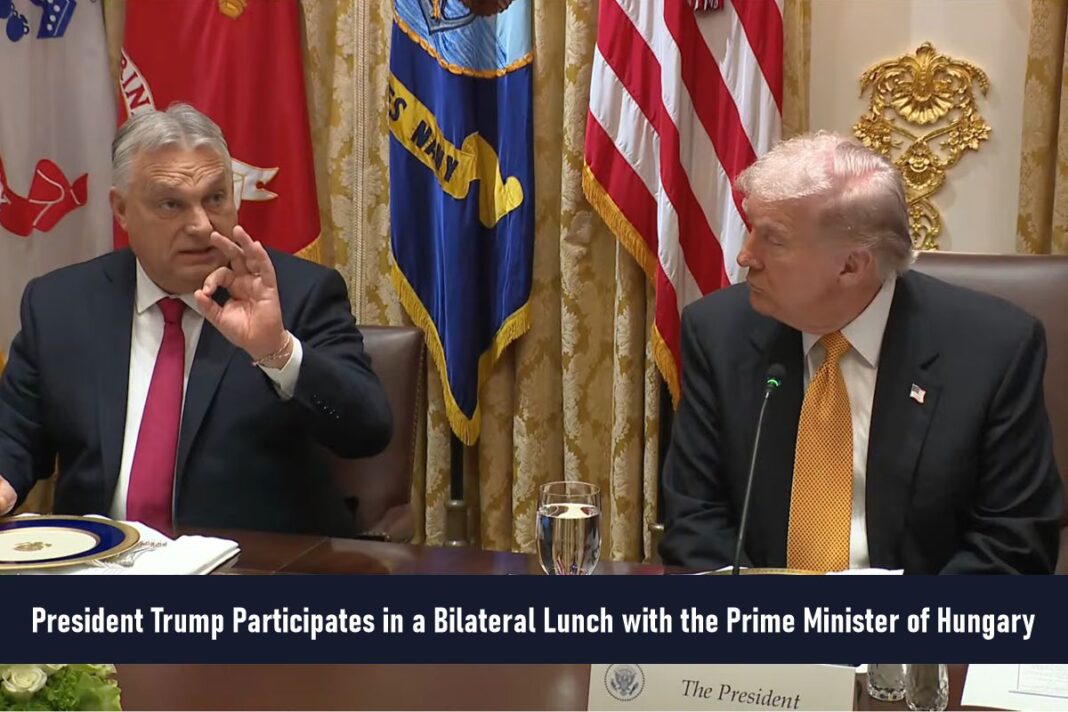‘We’re looking at it, because it’s very difficult for him to get the oil and gas from other areas,’ Trump said.
WASHINGTON—U.S. President Donald Trump hosted Hungarian Prime Minister Viktor Orban at the White House on Friday to discuss recent sanctions on Russian oil, which have significantly affected Hungary.
As one of the largest purchasers of Russian oil in Europe, Hungary has been a major challenge to the Trump administration’s efforts to end the war in Ukraine.
During the bilateral meeting with Orban, Trump said he may consider exempting Hungary from the sanctions.
“We’re looking at it,” Trump told reporters, “because it’s very difficult for him to get the oil and gas from other areas.”
“They don’t have the advantage of having the sea,” Trump added.
It is the first bilateral meeting in Washington between the two long-time allies since Trump’s return to the White House.
“He’s agreatleader,” Trump said of Orban, asserting that some European leaders are “jealous” of him.
“Those leaders are proven to be wrong,” said Trump, highlighting Hungary’s strict approach to immigration. “If you look at Europe, they’ve made tremendous mistakes on immigration,” the U.S. president stated.
In a recent interview with state radio Kossuth, Orban said that the exemption was needed because Hungary is a landlocked country dependent on the Russian pipelines for its energy supply.
The Hungarian prime minister said, “We have to make the Americans understand this peculiar situation … if we want them to allow exemptions from the American sanctions against Russia.”
On Oct. 22, the Trump administration announced tougher sanctions on Moscow, including on Russia’s two largest oil companies, Lukoil and Rosneft, in an effort to impact Russia’s ability to fund its war with Ukraine.
The move could expose other buyers—including China, India, and in Europe—to secondary sanctions. Orban earlier said that he’s looking for ways to “circumvent” the U.S. sanctions.
The Biden administration maintained a distant relationship with Orban’s government, citing corruption, erosion of judicial independence, pressure on independent media and nongovernmental organizations, and democratic backsliding in Hungary. The Biden administration also criticized Budapest for its close ties with Moscow and Beijing.








